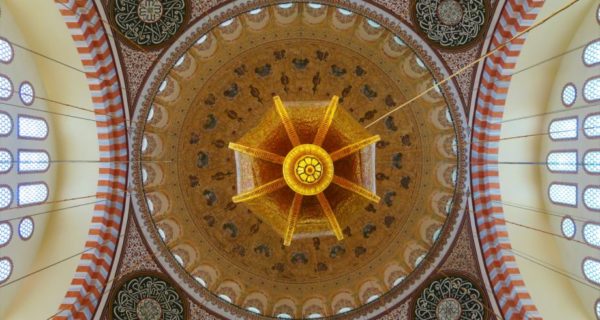For many, many years, I’ve been fascinated with the commonality of religions. This is a big thing in India where, to avoid communal conflict, often the phrase – “all religions teach the same thing,” is used repeatedly; perhaps in an attempt to gloss over the differences between people.
I’ve always wondered, is it actually true? Do all religions really teach the same thing, and if so, what is it? Many people answer this question by saying that all religions emphasize charity and brotherhood. But that, to me, seems like a very shallow similarity. It’s like questioning the similarity between humans and always getting the answer “we all have hearts.” If there is an underlying commonality, it’s surely because of something more than charity?
I think it comes down to this – Religions recognize human dignity.
At its core, away from charity, and removed from the myriad rules, deep down at its very heart, religion is about recognizing humans as something greater than we could be, not as beings of power and privilege, but as the essence of a person, stripped away of everything that makes them materially superior. Beneath this is the fanfare of our extravagances ˗ which I’ll argue is not a bad thing at all, but that’s a discussion for another day. And regardless of what we think of those who are poor and destitute; the sinner and the criminal, abandoned because the world could not help them, religion highlights their humanity.
Religions recognize that such people have value, by virtue of simply being people – not because they are great in their own right, but just because they are human. For those who have, as they say, ‘read a religious book cover to cover’, it could be a meaningless tautology – ‘humans are valuable because God made us important.’To someone who follows a religion only in order to hurt and harm others, I would say it is an inescapable aspect of religion ˗ after all, it is all about the rules, eh?
But it appears, to me at least, that human dignity is the seed from which all religion develops. Everything that comes from it; it’s leaders, it’s rules, it’s history, everything follows on from this first vital seed. A religion quickly loses it’s worth when it starts forgetting this truth.
Criminals are a case in point. We’ve long treated such people as the scum of society because they broke the existing rules set down by “civilized” society. We pack them off into prisons, relegate them to a subclass of human existence, and invest no caring at all about the countless ways in which they are violated. It goes unnoticed, so long as they are away from us and out of sight. Working for criminal welfare is all about recognizing their human worth. It’s about treating them as greater than the direct product of their actions.
There’s an old story that Shias grow up with. On the morning of 19th Ramadan in the year 661, Imam Ali went to the mosque for his prayers. There, a man named Ibn Maljam, who had planned to assassinate Ali, attacked him with a poisonous sword and then ran away. The people found Imam bleeding on the floor and helped him. Some of them ran after the assassin. It was evening when the assassin was finally caught. The time to break the fast was here and Imam was given milk and dates to break his fast. The men presented Ibn Maljam to him, tired and thirsty, as he had been running from them all day long.
The Imam looked up at him, the man who had dealt him a fatal blow, and asked if he would like some milk in order to quench his thirst.
That is what the seed of religion is. To recognize human dignity even in the very man who destroyed you. There’s a reason why washing the feet of criminals is a long-standing papal tradition. This very act is what it truly means to hate the sin and yet love the sinner. What it does not stand for, is condescendingly telling prostitutes you won’t approve of their “sin”. “This man welcomes sinners and eats with them,” is what it means. It’s recognizing that, despite someone’s actions, they are still human. It’s recognizing that a prostitute who gives water to a thirsty dog, is as capable of receiving heaven as anyone else.
Any ideology, religion or such which is taken to its extreme, to the point that it forgets its central message, becomes only detrimental. The hijab is a good example from within Islam. It seems pretty obvious to me, that the purpose of a hijab is to consider women as people in their own right, and not simply as objects to be physically admired. Taken to one of its extremes though, the hijab is, at best, seen as being about saving yourself for your husband. About preventing sexual assault. Taken to the other extreme, the hijab becomes a symbol of oppression. Of women being forced into a piece of cloth, and about seeing women as less than human. Of women who can’t even choose what to wear, because they’ve been conditioned, and they too, unknowingly, seeing women as lesser beings.
Anything that tries to diminish human worth, in the end, is an ideology which stands against religion, even if that very thing happens to be a part of religion itself.
